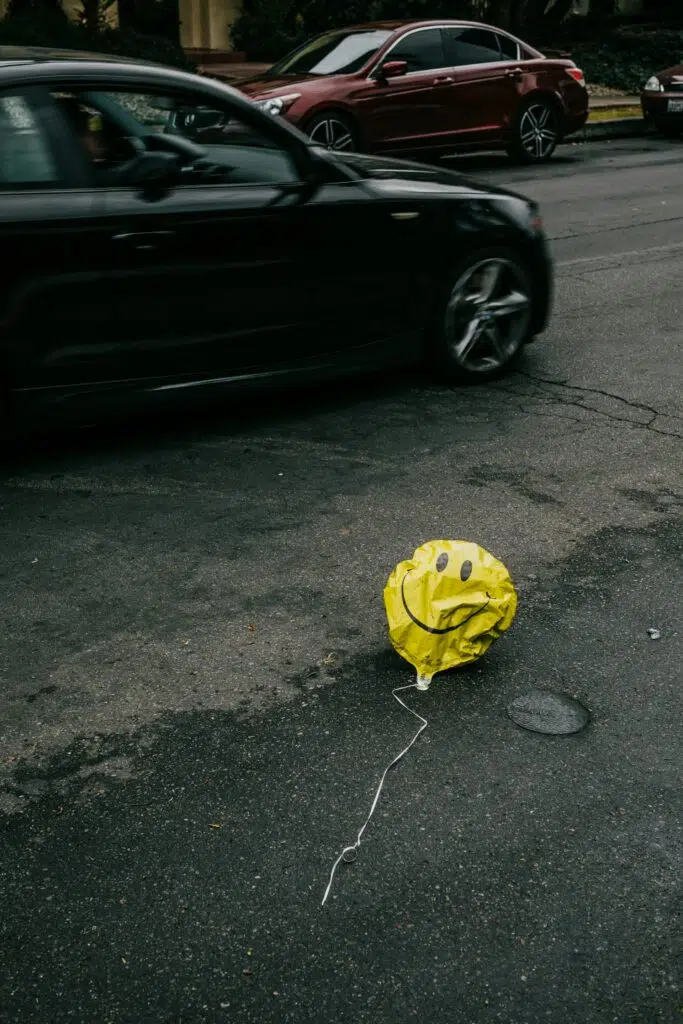How to Move On After a Friendship Breakup

Friendship breakups can sting just as much as a romantic breakup. After all, you’re experiencing a loss of shared history and an understanding of each other that can leave you feeling lonely and isolated. Not all friendships are forever, but moving on from the loss of a friendship does take time and some self-compassion.
Allow Yourself to Grieve
Our society often emphasizes romantic love and depicts breakups of romantic partnerships. But grieving the loss of a friendship can be intensely painful. Sometimes, a good friend can exit your life, and you don’t really know why or what you did. Without acknowledging the pain, it’s difficult to work through your feelings and move on to building healthier relationships.
There are many reasons why a friendship ends, such as:
- Shifting priorities
- Loss of shared interests or life stages
- Betrayal or dishonesty
- Negativity
- Lack of effort
- Unresolved conflict
- Communication issues
- Incompatible personalities
While a friendship breakup may not receive the same spotlight as a romantic one, they are still incredibly painful. Give yourself time to feel the grief and sadness that comes when a friendship ends.
Give Yourself Distance
Friendships are often a cornerstone of well-being, allowing you to feel connected to another human. When they end, they can leave a big void in your life. Humans are social creatures, and a friendship breakup can leave you with strong and intense emotions, such as:
- Anger and frustration
- Sadness
- Rejection
- Loneliness
Being around an ex-friend can be a reminder of the pain and make it difficult to move on emotionally. A bit of distance gives you space to acknowledge and process the loss so you can start to heal. Distance also helps to gain perspective from a less emotionally charged angle, reflect on what went wrong, and help to avoid repeating patterns in future friendships.
Take a Social Media Break
Social media breaks can be a powerful tool for healing after a friendship breakup for several reasons:
- It reduces triggers, as seeing your ex-friend may reopen emotional wounds.
- It gives you time to focus on activities that truly help you heal.
- It breaks the comparison trap that can make you feel worse.
- It allows you to disconnect and be more present in the moment.
A social media break doesn’t have to be permanent, but it can help you to re-establish a healthier relationship with social media and create space for healing.
Make New Habits and Memories
A lost friendship can be painful, but it can also be the start of positive growth. When a friendship ends, you tend to re-evaluate your needs and values. It creates space for you to find new friends and make you appreciate other existing connections you already have. A major change in life can even allow you to reinvent yourself and explore new interests or passions.
If you have mutual friends, the process of moving on can be more difficult. You can continue to nurture existing friendships, but don’t close yourself off to new ones. Recovery after a breakup takes time. You can’t control how a group of friends react, but you can control your own actions and reactions.
Find a Resolution When You Can
It’s easy to interpret a loss of friendship as a personal problem like it reflects your failings. But that’s not the case. While painful, friendship losses are common; priorities can shift, and friends can grow apart.
Two-thirds of Americans say they have ended a friendship, with most saying that it’s better to be upfront when ending a friendship. If possible, try to find a resolution. Think about whether reconciliation is right for you and the other person. If you choose to have a conversation, try to focus on solutions, choose a natural setting, and come from a place of empathy.
Reconciliation takes time, and sometimes, friendships end for a reason. Do what feels right for you.
Prioritize Self-Care
Prioritizing self-care after a friendship breakup is essential. Here’s why it matters:
- Help replenish your emotional energy and resilience, supporting your healing.
- Reduce stress and anxiety, helping to manage negative emotions.
- Boost self-esteem and focus on your positive qualities.
- Prevent burnout and maintain your overall well-being.
Self-care isn’t selfish; it’s strengthening your emotional toolkit for life’s challenges. Here are some ways to prioritize self-care:
- Regular exercise like swimming, running, or walking
- Practice relaxation techniques like meditation, mindfulness, and yoga
- Follow a healthy and balanced diet
- Connect with supportive friends or family members
- Explore new hobbies and activities you enjoy, like spending time in nature
- Seek professional help
Talk With Someone You Trust
Most of the time, when you end a romantic relationship, it feels pretty final. Maybe you’ve talked about separating, or you’re just not compatible. But, with friendships, it’s not always obvious when a connection has ended.
If you have a close friend who always puts you down and makes you feel small, it may be time to move on from that person and find supportive friends who build you up. Many scenarios can occur when losing a friend; talking to someone you trust can help you work through your feelings and validate your experience.
Talking to someone can be incredibly beneficial for several reasons:
- Emotional Processing: Talking to a close friend or family member can help you work through your feelings, gain perspective, and feel less isolated.
- Encouragement: Speaking about your feelings can make you feel supported and understood.
When thinking about who to talk to, choose someone trustworthy, non-judgmental, and a good listener. If you don’t feel comfortable speaking to someone in your life, consider reaching out to a therapist. Sometimes, talking to someone entirely out of your circle can help you step back from the situation, reflect, and look at the experience in a completely different light.
Contact Thriving Center of Psych
In a report published in the Journal of Social and Personal Relationships, researchers estimate that it takes about 200 hours to consider a person a close friend. Between work, family, and other commitments, that’s a lot of hours to put into a relationship.
If you’re going through a friendship breakup, speaking to a therapist can be helpful for many reasons:
- Navigate and process complex emotions like anger, confusion, and betrayal.
- Understand the cause and factors that led to the relationship breakdown.
- Develop communication skills to equip you with tools for future relationships.
- Build self-esteem and confidence to help you form new, healthy relationships.
- Address mental health issues and create a unique treatment plan for your needs.
- Learn healthy coping strategies to help you deal with difficult emotions like stress.
It takes time to heal from the loss of a close friendship, but you don’t have to go through it alone. Contact Thriving Center of Psych today, and our expert therapists will help you navigate this difficult time. We have offices nationwide, including NYC and LA.

Anxiety Attack and Panic Attack Differences
’s easy to mix up anxiety and panic attacks. While anxiety attacks and panic attacks do have overlapping symptoms, they are different. Let’s get into the differences between anxiety and panic attacks so you can be in a better position to get the help you need.

How to Overcome Procrastination and Anxiety
Procrastination is a very typical human experience. At some point or another, we’re all guilty of putting off that task we know is important. Maybe it’s household chores, filling your taxes, paying bills, or some other mind-numbingly boring task.

How to Build a Consistent Routine That Combats Depression
Depression can feel like a pit you can’t escape from, but know that depression is treatable with the right help. A basic daily ritual encourages healthy habits like a regular sleep schedule, healthy food choices, and exercise that support mental health.

How to Manage Stressful Life Transitions and Events
From getting into college or having a baby to splitting from a spouse or experiencing the death of a loved one, life can surprise you with big wins and tear you down with loss. Life is filled with transitions, some happy, others stressful and difficult.

